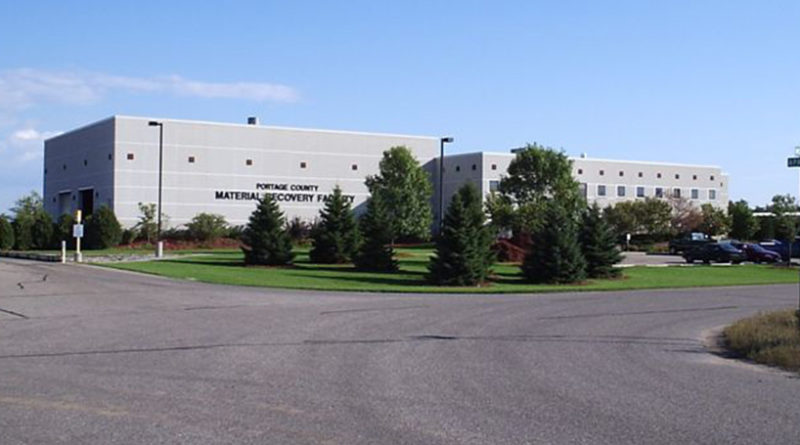Column: Tips on composting
By Amanda Haffele
The National Composting Council estimates the average U.S. household generates 650 pounds of compostable items every year.
Composting is a great way to deal with food waste, leaves, and grass clippings. Backyard compost systems reduce the amount of waste going to a landfill and keep garbage from smelling. Finished compost is a valuable soil amendment that increases the health of the soil and the plants that reside in it. When composting at home it is important to remember a healthy pile needs food, oxygen and water.
Food
Compost is made when bacteria, fungi, actinomycetes, mites, worms, sow bugs, centipedes, and other organisms eat the organic matter and break it down. These organisms need a balanced diet of carbon and nitrogen, commonly known as browns and greens. Brown items add carbon to the pile and include leaves, straw, paper, sawdust, animal bedding mixed with manure, and wood chips. Common green or nitrogen rich items include vegetable and fruit scraps, coffee grounds, grass clippings, and manure from herbivores. When added to a pile of 2 or 3 browns for every green, by volume, organisms flourish and compost is quickly made. If this ratio is altered the process becomes slower.
Other acceptable compost materials include, eggshells, tea bags, used potting soil, most weeds before they go to seed, garden debris, cardboard, hair, fur, and other natural fibers such as lint. When adding dryer lint avoid using non-organic fibers like polyester; stick to wool or cotton only lint
Not everything should be composted. It’s best to avoid meat, dairy, oils, and animal waste as these items will create an odor and attract rodents. Persistent weeds (crabgrass, invasive species, weeds gone to seed) and diseased or chemically treated plants may live on in the compost pile. Most backyard systems won’t get above 160 degrees for three days to kill these items and will live on in the newly created compost. You should also avoid adding walnut leaves as walnut trees have a naturally occurring chemical in them that inhibits growth in other plants.
Oxygen
It’s important to remember that compost piles need oxygen. If a pile is starved for air, all activity stops and it may start to smell. Turning the pile or inserting sticks, cornstalks or perforated pipes into or under the pile are all ways to ensure enough oxygen is reaching the compost.
Water
Water is vital to support compost pile organisms. If a pile is too dry, bacterial activity will slow or cease; if it’s too wet, the pile will lose air and lead to anaerobic conditions (meaning smells will form). Piles should be as wet as a wrung-out sponge. A simple moisture test is to take a handful of compost and squeeze it. If it stays together in a ball it’s good; if it falls apart add water; if water drips out, add browns and/or turn the pile.
Finished Compost
Finished compost is dark, loose, crumbly and has an earthy smell. The original materials are unrecognizable and the pile has shrunk to about third of its original volume. Try a bag test to make sure it’s done. Using a sealable plastic bag, add a sample of compost and let it sit for a week. If the compost has an ammonia smell, it is unfinished.
Finished compost can be added to gardens, flower beds, lawns, and house plants. In sandy soils it will increase the soil’s ability to hold water and nutrients. In clay soils it will create pores that allow water to drain and roots to spread. Compost adds slow-release macro and micronutrients, absent in most synthetic fertilizers, which can stay in the soil for years.
If you’d like a structure instead of a pile in your backyard, UW-Extension Dane County has amazing resources on their website on building your own compost bin, compost recipes and using your compost.
Recycling Connections in the City of Stevens Point also has great educational information, including a
free composting webinar April 19 th , and sell a very popular compost bin.
Lastly, if you can’t have a compost bin or pile for whatever reason but you’d still like to compost, reach out to Bucket Ruckus in Stevens Point to see if you qualify for curbside collection of your organics.
Good luck composting and remember – to keep rodents and other creatures from visiting your pile, keep
it scent free. Animals are attracted to scents so if your pile has an odor, the animals will know it’s there.
In all the years I’ve been composting, I’ve never had an issue with rodents, only a hungry black bear
looking for an easy meal. He also snagged the nearby suet cakes, which were probably the reason he
found my compost pile.
Amanda Haffele is the Portage County Solid Waste Director and she works at the Material Recovery Facility, 600 Moore Rd., in the Plover Industrial Park. It can be reached at 715.346.1931 or www.co.portage.wi.us/department/solidwaste.


